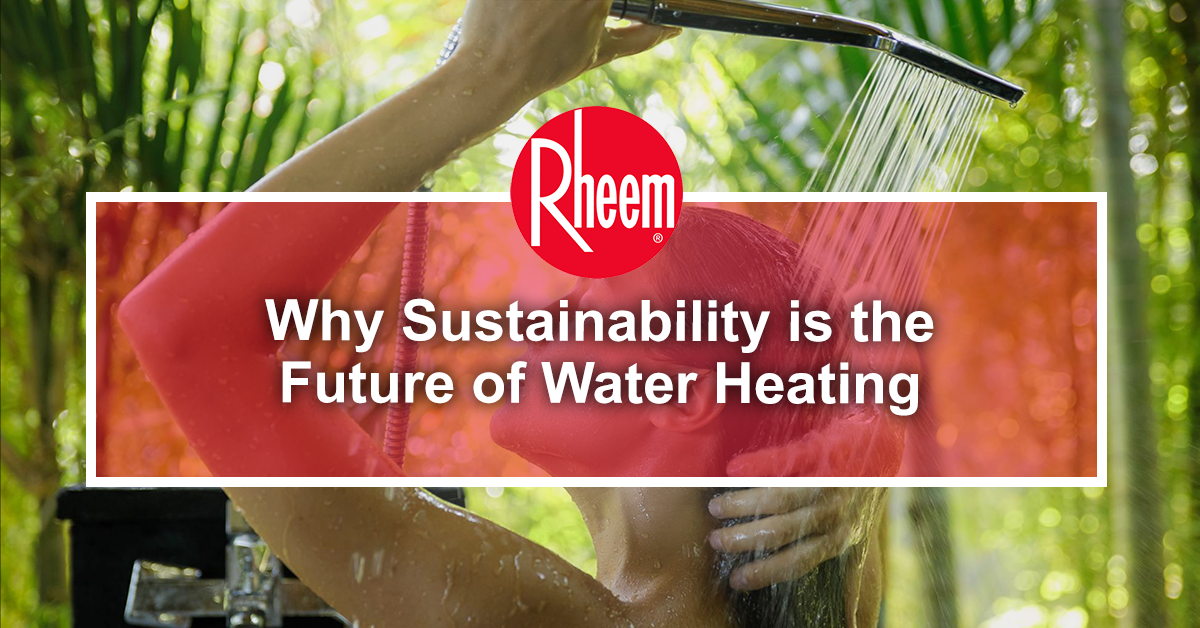
Environmental consciousness has greatly increased in recent years, resulting in more and more industries continuing to explore sustainable practices that will reduce carbon emissions. This involves a broad range of initiatives aimed at reducing carbon footprint and promoting responsible resource management. Fostering sustainability will allow the world to save up to $26 trillion by 2030, which can be used for other critical activities.
One industry that will be seen as a major player in sustainability in the long run is the water heating sector. It is no secret that most traditional water heaters consume a lot of energy, leading to high energy losses, elevated utility bills, and increased carbon emissions. However, with continuous technological advancements, the emergence of greener water heating solutions changed the game for those longing for cozy showers without having a significant impact on the environment.
For the longest time, traditional water heating units significantly contribute to a property’s energy consumption, mainly because they need to work 24/7 to maintain the temperature of the stored water. Continuous heating results in unnecessary energy expenditure, putting a significant strain on the power grid and elevating greenhouse gas emissions.
In addition, the production of water heating units also contributes to the depletion of natural resources. Heaters are made up of several moving and non-moving components, commonly made using metals and minerals that strain finite resources. The exhaustion of raw materials underscores the environmental footprint of water heaters, which is why adopting sustainable practices will become more crucial in the coming years.
With the need for more sustainable solutions continually increasing, several innovations have been made in the water heating sector. Solar water heaters are at the forefront of this technology, allowing people to use the energy from the sun to heat the water stored in the tanks. This allows for little to no energy consumption, which helps in lowering electrical bills and carbon emissions.
Another advancement that is making waves in the market is heat pump water heaters, which work by absorbing the warmth in the air and using it to warm water. By utilizing ambient heat, heat pump heaters minimize energy consumption, which makes them an ideal alternative to traditional storage heaters.
Furthermore, tankless water heaters have revolutionized the way people get their hot water, eliminating constant heat loss by only heating the water passing through the unit. This gives people an on-demand supply of warm water and is designed to be compact, making it ideal for electric water heaters in kitchens or bathrooms.
These innovations have transformed water heating, providing several benefits to homeowners, including:
As one of the most prominent players in the water heating industry, Rheem has been dedicated to providing the most innovative products while reducing our impact on the environment. Our Design for Zero Waste approach in manufacturing our products highlights our goal of becoming the leaders of sustainability in the sector, promoting sustainable living to homeowners and employees worldwide.
This goal is backed by our three “Degrees” of commitment, which shows our vision for 2025 and beyond:
So, if you are looking for one of the most trusted brands for water heaters in the Philippines, then Rheem Philippines is for you. With almost 100 years of industry experience, we have put sustainability in everything we do, ensuring that residential and commercial properties will be equipped with a water-heating solution that will not have a significant negative impact on the environment.
You can browse our extensive range of tankless bathroom heaters and electric storage water heaters on our website. For any inquiries or more information about our products, you can also talk to one of our representatives at www.rheemphilippines.com/contact.
Read More: Smart Strategies for Conserving Water and Reducing Utility Costs
Subscribe

At Rheem, we strive to innovate
best-in-class products to lead the industry
in
environmental improvements.
Sustainability